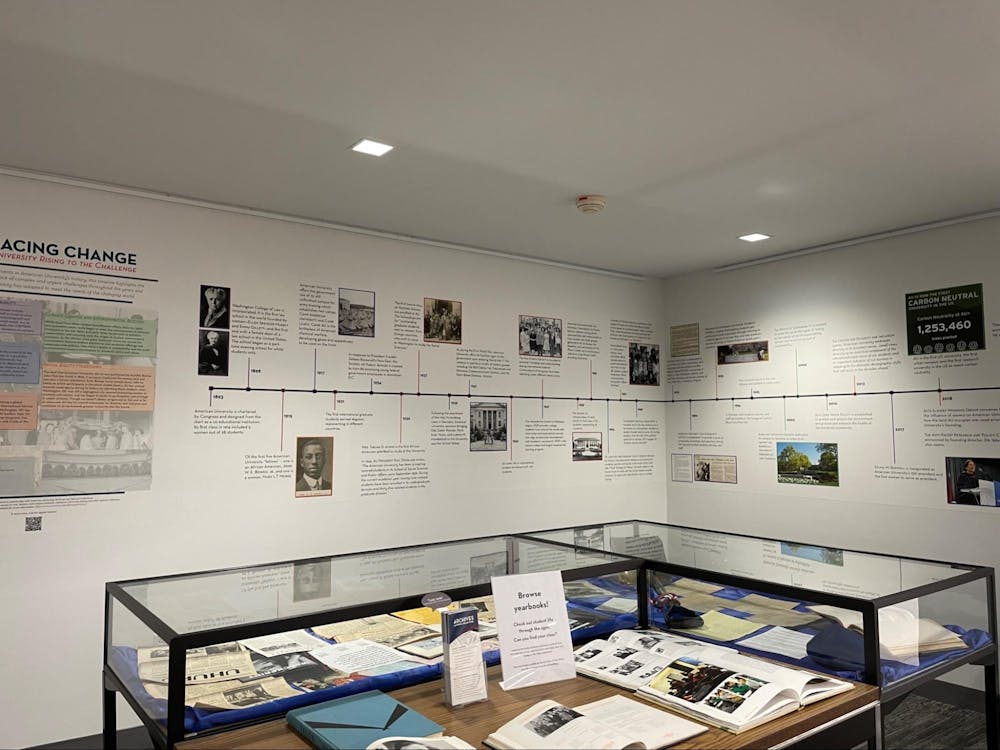American University Archives and the Founders Week Committee showcased an exhibit on the first floor of Bender Library with a comprehensive overview of American University’s history and an acknowledgment of AU founder John Fletcher Hurst’s ownership of enslaved people.
Titled Embracing Change: AU Rising to the Challenges, the exhibit showcased various historical items, including yearbooks, letters and student publications, dating back to the beginning of AU to nearly the present day.
The exhibit was put together with the work of Founders Director Jeremy Ward, Programming Graduate Assistant for the Center of Student Involvement Madeline Portilla, Michelle Eller and Sarah Graff from the University library and Associate Archivist Leslie Nellis.
The exhibit also noted that Hurst and his family were “active participants in Maryland chattel slavery.”
Nellis said conversations surrounding Hurst’s ownership of enslaved people happened around Founders Week in 2018, after a column published in The Eagle discussed the relationship to slavery in AU’s founding.
“So when I talked with my colleagues working on the exhibit, I said that ‘we're going to acknowledge this, right?’ And they said, ‘Oh, yeah,’” Nellis said. “It was definitely a priority of Jeremy and Maddie … to acknowledge that history.”
The beginning of the exhibit had a chart with a color-coordinated timeline. The color blue on the timeline highlights instances of “War, Peace, and Government” that occurred in American University’s history: green for “Climate Change and Environmental Activism,” purple for “Advancing Gender and Sexuality Equity,” orange for “Racial Equity Milestones” and red for “Global Campus.”
The exhibit contained copies of a few student publications like The AU Women’s Newsletter, News and Views from the International Student Community, The Jewish Pickle, Campus Republican and The Blackprint.
There are also yearbooks from 1931, 1963, 1971, 2004 and 2009 with student pictures, and various campus activities and clubs. The exhibit included a shovel used in the groundbreaking of the School of International Service on June 9, 1957.
The one thing Nellis wanted to include in the exhibit but didn’t make the cut was “ ... a lot of the individual student protests that took place between about 1968 and 1975.” She said there were numerous protests and students had varying demands about being anti-Vietnam War, other domestic issues and the way AU was run.
“We tried to put in some key ones or key ways that actually spurred change on campus,” Nellis said.





